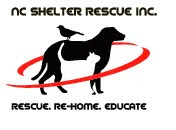Adkins et al. v. Nestlé Purina PetCare Company, et al., Case No. 1:12-cv-02871 (N.D. Ill.);
Matin v. Nestlé Purina PetCare Company, et al., Case No. 1:13-cv-01512 (N.D. Ill.);
Gandara v. Nestlé Purina PetCare Company, et al., Case No. 1:13-cv-04159 (N.D. Ill.)
IF YOU PURCHASED OR YOUR PET(S) USED OR CONSUMED WAGGIN’ TRAIN OR CANYON CREEK RANCH DOG TREAT PRODUCT(S), PLEASE READ CAREFULLY. THIS WEBSITE IS TO INFORM YOU OF A PROPOSED SETTLEMENT THAT MAY AFFECT YOUR RIGHTS.
YOU MAY BENEFIT FROM READING THIS WEBSITE. IF YOU WISH TO RECEIVE BENEFITS UNDER THE PROPOSED SETTLEMENT, YOU MUST SUBMIT A CLAIM FORM.
Case BackgroundA Settlement has been reached in class action lawsuits claiming that Waggin’ Train or Canyon Creek Ranch brand dog treat products imported from or containing ingredients imported from China (“Dog Treat Products”) were defective and that some pets may have become sick and/or died after consuming the products. A list of the Dog Treat Products can be found here. Defendants Nestlé Purina PetCare Company and Waggin’ Train, LLC have denied any wrongdoing. The Court has not decided which side is right.
Defendants have agreed to create a $6,500,000.00 cash Settlement Fund from which eligible consumers and/or pet owners may receive a cash payment for up to 100% of certain documented economic damages related to their purchase of or their pet’s consumption of the Dog Treat Products, after the payment from the Settlement Fund of the costs of notice and Claims Administration, attorneys’ fees, Class Representative awards, costs, and taxes. Economic damage means the expenses you incurred related to your purchase or your pet’s consumption of the Dog Treat Products, and include veterinary screening or treatment bills and other expenses related to your pet’s illness and/or death.
For each of your pets that used or consumed Dog Treat Products, you may recover up to 100% of certain reasonable economic damages you claim you suffered if you can provide documentation showing the economic damage.
In addition to compensation for expenses supported by documentation, you may also receive up to a $300 payment per pet for reasonable economic damages for which you do not have supporting documentation. You must still complete a Claim Form and provide information about your economic damages to be eligible for payment of your undocumented expenses.
The total amount available for product reimbursement is $700,000, and the total amount available for healthy screenings is $100,000. Reimbursement of Claims may be subject to certain pro rata reductions and other limitations described on this website.
| SUMMARY OF CLASS MEMBERS’ RIGHTS AND OPTIONS UNDER THE PROPOSED SETTLEMENT | |
| SUBMIT A CLAIM | The only way to get a payment. Submit your Claim Form by mail, facsimile or email (.pdf) to the Claims Administrator no later than April 1, 2015. |
| EXCLUDE YOURSELF | Get no payment. This is the only option that allows you to not be bound by the final judgment and release and to be part of any other lawsuit concerning the issues being settled now. You must exclude yourself from the Settlement Class by no later than February 10, 2015. |
| COMMENT ON THE PROPOSED SETTLEMENT | Write to the Court about why you support or oppose the proposed Settlement. If you want to object to the Settlement, you must do so in writing by May 25, 2015. Filing an objection does not exclude you from the Settlement. |
| GO TO THE FINAL APPROVAL HEARING | Ask to speak to the Court about the proposed Settlement at the Final Approval Hearing, scheduled for June 23, 2015 (date subject to change). |
| DO NOTHING | Get no payment. You will not be able to bring or be part of any other lawsuit concerning the issues being settled now, and you will be bound by the final judgment and release in this case. |
If you would like further information about the claims asserted in this case, you can review a copy of the Settlement Agreement here.
NOTICE: This website provides a summary of the Settlement and is provided for informational purposes only. In the event of any discrepancy between the text of this website and the original text upon which it is based, the text of the original document shall prevail.
Questions? Contact the Claims Administrator at 1-866-329-9963 or info@DogTreatProductsSettlement.com


















